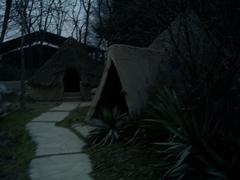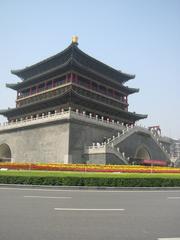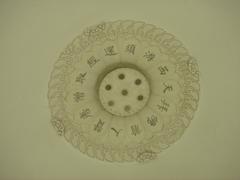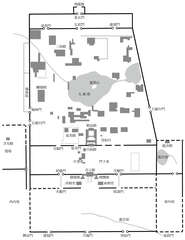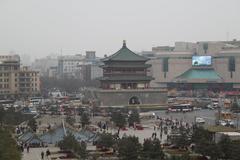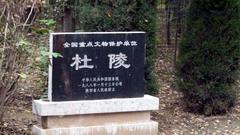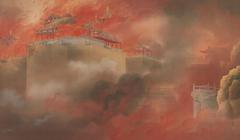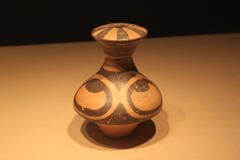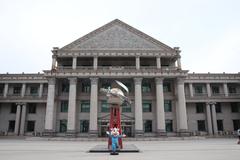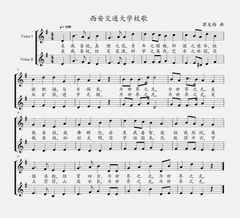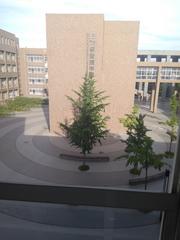Revolution Park Xi’an: Visiting Hours, Tickets, and Complete Guide
Date: 04/07/2025
Introduction
Revolution Park (革命公园) in Xi’an is a remarkable blend of tranquil urban green space and living historical memorial. Located in the heart of Xincheng District, it commemorates the sacrifices made during a pivotal era in China’s modern history, especially during the 1926–1927 Siege of Xi’an. With origins dating back to February 1927, the park was established under General Feng Yuxiang’s leadership as a tribute to the Shaanxi National Army and civilians who defended the city during the Warlord Era and the Northern Expedition. Spanning approximately 10 hectares, Revolution Park is both a sanctuary for relaxation and a meaningful destination for understanding Xi’an’s 20th-century transformation (Trip.com, China Holiday, chinawiki.net).
Historical Significance
Origins and Foundation
Revolution Park was founded in 1927, following the devastation of the Siege of Xi’an in 1926. The park was conceived as a memorial for the thousands of soldiers and civilians who lost their lives defending the city against warlord armies. General Feng Yuxiang, known as the “Christian General,” mobilized the community to construct tombs and memorial structures, including the Martyrs’ Shrine and Revolution Pavilion, establishing the park’s enduring role as a site of remembrance (Trip.com, Xi’an Private Tour).
The Siege of Xi’an
In 1926, Xi’an was besieged for eight months by warlord Liu Zhenhua’s troops, resulting in the loss of around 50,000 lives—about a quarter of the city’s population. The establishment of Revolution Park symbolized the city’s resilience and the beginning of a new chapter in China’s pursuit of unity during the Northern Expedition (chinawiki.net).
Memorial Architecture
Central features include the Martyrs’ Shrine, Revolution Pavilion, and the Revolution Monument—an obelisk inscribed with revolutionary slogans and surrounded by bronze reliefs. The park’s fountain, adorned with a Taihu stone relic from the Tang Dynasty, forges a symbolic link between Xi’an’s imperial legacy and its modern history (China Holiday).
Visiting Revolution Park: Practical Information
Location and Access
- Address: No. 53, Siwu Road, Xincheng District, Xi’an, Shaanxi Province
- Public Transport: Easy access via multiple bus lines (4, 10, 11, 33, 103, 301, 707, Tourist 8/610) and proximity to Wulukou Metro Station (about 380 meters away) (chinawiki.net).
- Parking: No dedicated lot, but nearby street and public parking are available.
Opening Hours
- Daily: 6:00 AM to 10:00 PM (hours may vary slightly by season; some sources note 24-hour access, but main facilities are open during these hours) (Trip.com).
Admission
- Tickets: Free entry for all visitors (chinawiki.net).
Accessibility
- Paved walkways, wheelchair-accessible paths, ramps at entrances, and stroller-friendly routes ensure the park is accessible to all.
Amenities
- Clean restrooms (including accessible toilets and baby-changing stations)
- Benches and shaded pavilions
- Food stalls and small cafes (seasonal and during festivals)
- Drinking water and snack kiosks
- Children’s playground and fitness zones
Main Attractions and Features
Memorials and Monuments
- Revolution Monument: Granite obelisk commemorating the martyrs of the 1911 Xinhai Revolution and later revolutionary movements, surrounded by relief sculptures.
- Martyrs’ Shrine & Memorial Wall: Sites for annual ceremonies, engraved with the names of local heroes, offering quiet spaces for reflection.
- Revolution Pavilion: Central feature for commemorative events and historical exhibits.
Landscaped Gardens and Natural Features
- Central Lake: 1.5-hectare lake with willow trees, flowerbeds, arched bridges, and lotus ponds. Paddle boats available during warmer months.
- Peony and Chrysanthemum Gardens: Popular during respective seasonal festivals.
- Bamboo Groves and Shaded Walkways: Ideal for tai chi, group dances, and respite from summer heat (China Highlights).
Cultural and Recreational Facilities
- Open-Air Stage: Hosts traditional opera, folk music, and dance performances, especially during weekends and festivals.
- Children’s Playground and Amusement Area: Modern equipment and safety features for families with young children.
- Fitness Zones: Outdoor exercise equipment, jogging tracks, and designated spaces for group exercise.
Art and Seasonal Exhibitions
- Bronze and Stone Sculptures: Revolutionary-themed art installations with historical context.
- Temporary Art Exhibitions: Local artists and student works are occasionally displayed outdoors.
Things to Do in Revolution Park
- Explore the memorials and learn about Xi’an’s modern history.
- Enjoy seasonal flower festivals (Peony in April, Chrysanthemum in October).
- Participate in community fitness activities or watch local performances.
- Take children to the playground or amusement area.
- Capture photos of the park’s scenic beauty, especially early or late in the day for optimal lighting.
- Walk or jog along the shaded paths, or relax by the lake.
Best Times to Visit
- Spring (March–May) and Autumn (September–November): Pleasant weather and beautiful floral displays.
- Early Morning/Late Afternoon: Quieter, cooler, and better for photography.
- During Festivals: For a lively atmosphere, cultural performances, and special exhibits.
Nearby Attractions
- Ancient City Wall of Xi’an
- Bell Tower and Drum Tower
- Muslim Quarter
- Terracotta Warriors Museum (China Highlights)
- Shaanxi History Museum
Proximity to these iconic sites makes Revolution Park an ideal stop on a broader Xi’an itinerary.
Events and Community Life
- Annual Memorial Ceremonies: Wreath-laying and speeches on Martyrs’ Day (September 30th) and National Day (October 1st).
- Flower Festivals: Peony (April) and Chrysanthemum (October) festivals feature elaborate displays and guided tours.
- Daily Community Activities: Tai chi, calligraphy, chess, and social dancing are common, providing insight into local culture (Wanderlog).
Frequently Asked Questions (FAQs)
Q: What are Revolution Park’s visiting hours?
A: Daily from 6:00 AM to 10:00 PM; some areas may allow 24-hour access.
Q: Is there an admission fee?
A: No, entry is free for all visitors.
Q: Is Revolution Park wheelchair accessible?
A: Yes, main paths and entrances are accessible.
Q: Are guided tours available?
A: Official guided tours are limited, but local operators may offer tours including Revolution Park.
Q: What are the best times to visit?
A: Spring and autumn, or early/late in the day for comfort and fewer crowds.
Q: Can I bring children?
A: Yes, the park is family-friendly with a dedicated playground and amusement rides.
Q: What amenities are available?
A: Restrooms, food stalls, shaded seating, and fitness equipment.
Travel Tips
- Language: Signage is mostly in Chinese; translation apps or guides are recommended for non-Chinese speakers.
- Dress: Wear comfortable shoes; dress modestly near memorials.
- Safety: The park is generally safe, but watch belongings during busy events.
- Etiquette: Respect quiet zones near memorials and do not climb on monuments.
Suggested Visuals
- Photos of the Martyrs’ Shrine, Revolution Monument, and central lake.
- Images of flower festivals and seasonal foliage.
- Interactive map showing the park layout and nearby attractions.
- Short video walkthroughs available on some travel platforms.
Additional Resources
- Trip.com
- China Holiday
- chinawiki.net
- China Highlights
- Wanderlog
- Ancient City Wall
- Shaanxi History Museum
Conclusion and Recommendation
Revolution Park is a compelling destination where history, culture, and nature converge. Its memorials and monuments stand as reminders of Xi’an’s modern history and China’s journey to unity, while its gardens and community spaces offer relaxation and leisure for all ages. With free admission, excellent accessibility, and proximity to other major sites, Revolution Park is an essential stop for anyone exploring Xi’an’s layered heritage.
For enhanced insights and up-to-date event information, download the Audiala app and follow our social media channels. Plan your visit to Revolution Park to experience the spirit of resilience and community that defines modern Xi’an.
